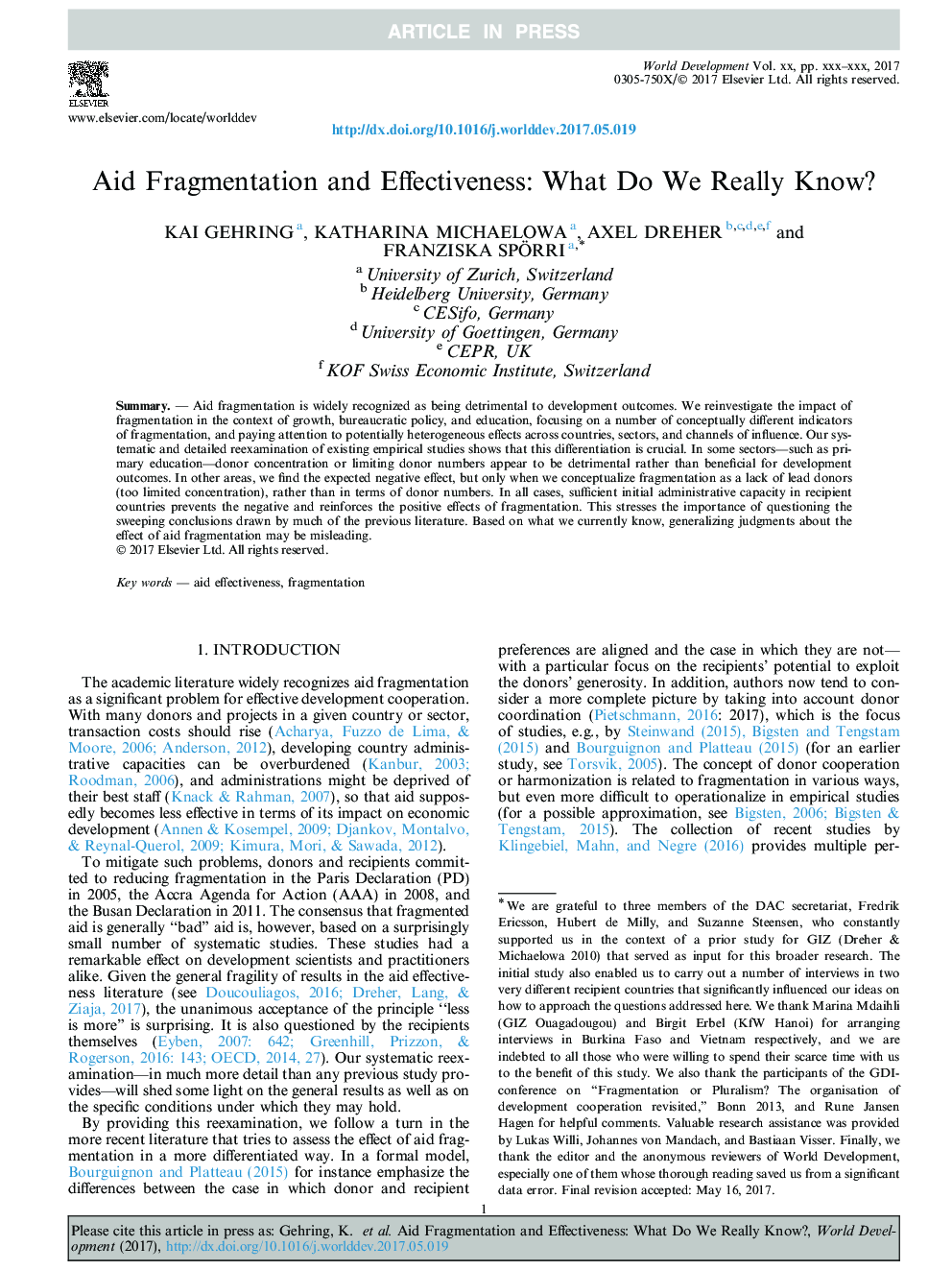| Article ID | Journal | Published Year | Pages | File Type |
|---|---|---|---|---|
| 5105107 | World Development | 2017 | 15 Pages |
Abstract
Aid fragmentation is widely recognized as being detrimental to development outcomes. We reinvestigate the impact of fragmentation in the context of growth, bureaucratic policy, and education, focusing on a number of conceptually different indicators of fragmentation, and paying attention to potentially heterogeneous effects across countries, sectors, and channels of influence. Our systematic and detailed reexamination of existing empirical studies shows that this differentiation is crucial. In some sectors-such as primary education-donor concentration or limiting donor numbers appear to be detrimental rather than beneficial for development outcomes. In other areas, we find the expected negative effect, but only when we conceptualize fragmentation as a lack of lead donors (too limited concentration), rather than in terms of donor numbers. In all cases, sufficient initial administrative capacity in recipient countries prevents the negative and reinforces the positive effects of fragmentation. This stresses the importance of questioning the sweeping conclusions drawn by much of the previous literature. Based on what we currently know, generalizing judgments about the effect of aid fragmentation may be misleading.
Keywords
Related Topics
Social Sciences and Humanities
Economics, Econometrics and Finance
Economics and Econometrics
Authors
Kai Gehring, Katharina Michaelowa, Axel Dreher, Franziska Spörri,
